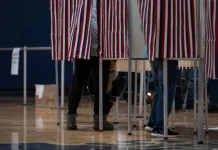A few weeks ago everyone at NEC received a colorful email from the Environmental Action Committee (EAC) offering the community an EcoChallenge.
After signing up through the EcoChallenge website, students, faculty, and staff participated in this challenge from October 14th to the 28th.
EcoChallenge, a “friendly competition” that facilitates change in an easy, habit forming, community building context, desires to expand people’s comfort zones and make a difference. Their theory is that it takes only two weeks for a change to transfer into habit.
President of EAC, Senior Stephanie Goulet, explained, “EcoChallenge was all about giving people a reason to commit to a few small actions to reduce their impact every day for two weeks.”
A list of challenges sponsored by different companies included various options. Categories included food, water, transportation, community, and nature. Examples of specific actions under these categories were: “go for a daily walk or spend time outside; buy from a farmer’s market or zero waste cooking; 5-minute showers or brush my teeth without running water; try carpooling or go-by-bike; and talk to my friends about an environmental issue that’s important to me or volunteer in my community.”
“Each of the categories have a range of actions that require a different amount of effort,” Goulet said, “so that people are able to seek out ways that are most applicable to their own lifestyle.”
As of October 24th, the participants for the month of October had reached 8,078 people. On the site challengers share progress and allotted points, that can eventually equal prizes. The top participant won $500 in prizes including a backpack from REI, a KEEN Shoes gift card, an EcoChallenge Reduce Your Impact Kit, and an NWEI discussion course book. The top team won a $1,500 gift certificate for NWEI engagement tools, either an NWEI discussion course eBook or custom EcoChallenge event, and three hours of consulting from NWEI staff to isolate sustainability goals and make a plan of action with an engagement tool they choose.
While prizes are great, the effect the challenge had is invaluable.
“I think the most rewarding part about this challenge,” Goulet said, “is that it allows anyone ─ even those who consider themselves to already be acting to reduce their carbon emissions ─ to challenge themselves to something they don’t already do to help the environment.”
In combination, according to EcoChallenge, participants of this challenge collectively saved “42, 283 plastic bottles from the landfill, conserved 410,746 gallons of water, helped 1,882 individuals, carpooled for 19,237 miles, made 886 calls to public offices, consumed 1,448 locally-sourced meals, spent 317,739 minutes outdoors, saved 17,593 disposable cups from the landfill, saved 53,039 pounds of CO2, volunteered 2,222 hours of their time, had 2,497 conversations with friends” and more.
Goulet explained, “While everyone is always encouraged to act in ways that reduce their impact on the environment, this particular online challenge has now ended. That being said, I believe the website(https://ecochallenge.org) is accessible year-round, so if you are ever in need of ideas to reduce your impact, feel free to go ahead and check it out.”
It was online that EAC first discovered EcoChallenge and decided it was a good fit for NEC. EAC said they “felt that it was way past the time for New England College to start catching up with the rest of the world in how we approach the environmental issue of climate change.”
For this past challenge, 38 students, faculty, and staff from NEC, participated. But Goulet expected that with more awareness of the event they could increase these numbers exponentially next year. EAC believes the responsibility to reduce carbon emissions falls on everyone in the community.
This year there was only one team from NEC composed of all participants from the college. Next year, EAC hopes to separate into teams so the teams are able to challenge one another (faculty/staff versus students, etc.). Dividing up the teams can encourage more action, which furthers impact.
“While the EcoChallenge is a step in the right direction, we’d like to see even more action taking place on campus,” Goulet said. “Particularly, we are calling for some serious action on behalf of the administration to lead the New England College community in becoming a carbon neutral campus.”


















